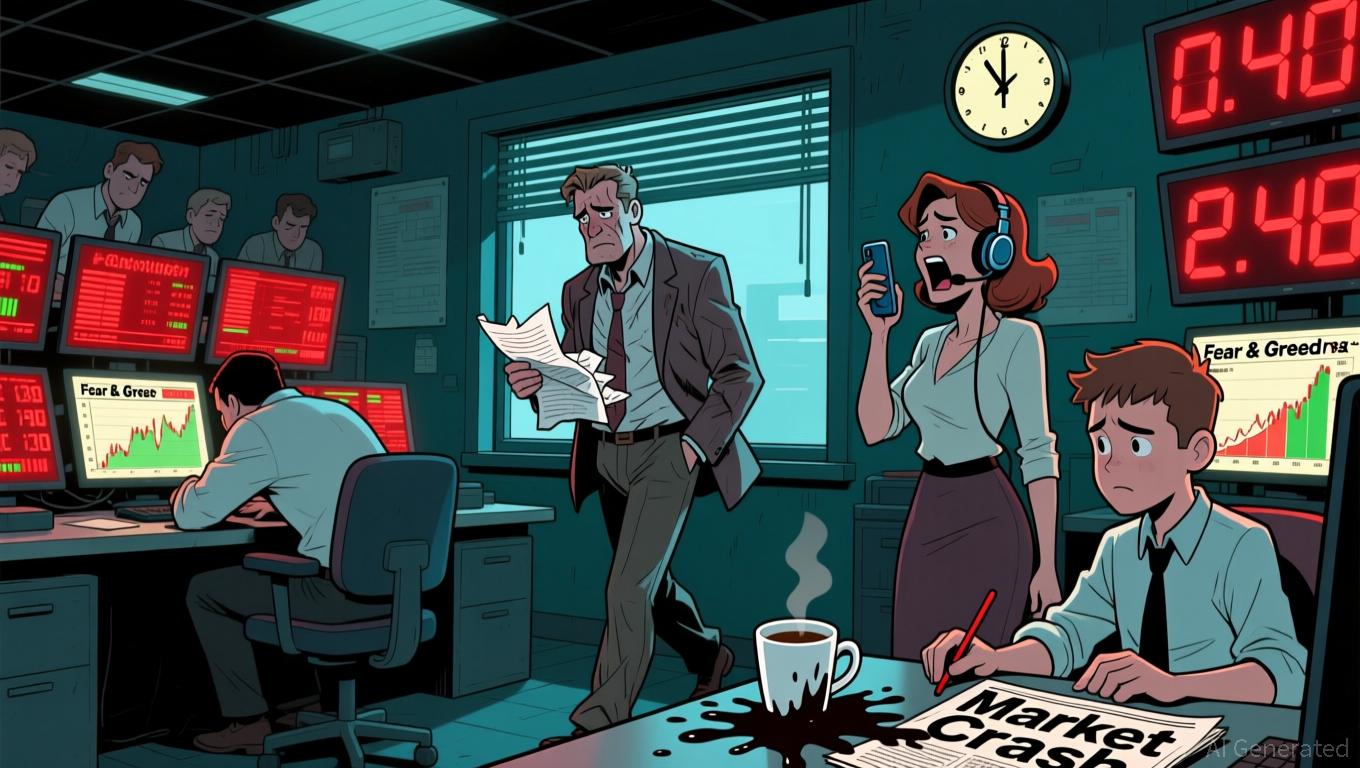LUNA Drops 13.02% Over the Past Week as Recovery Efforts Continue After Collapse
- LUNA dropped 13.02% in 7 days as of Nov 6, 2025, amid ongoing post-2022 collapse recovery efforts. - Terra 2.0 rebranded from algorithmic stablecoin model to governance-driven DeFi and payment solutions. - Financial analysts monitor LUNA's volatility as a case study for blockchain governance and ecosystem resilience. - The token's 80% annual price drop highlights risks in algorithmic models and decentralized finance adaptation.
As of NOV 6 2025,
LUNA, which serves as the primary token for the
Initially introduced within the
In response, Terra 2.0 was introduced—a revamped blockchain that abandoned the algorithmic stablecoin approach in favor of a governance-focused ecosystem. The updated LUNA now supports staking and protocol governance, but it no longer functions as a stabilizer for stablecoins. The project’s emphasis has shifted to decentralized finance (DeFi), payment infrastructure, and community-driven growth.
Even with these foundational changes, LUNA’s trading patterns continue to draw attention from market analysts. The 13.02% decline over the week ending NOV 6 2025 highlights persistent market volatility, though daily trading has remained relatively steady. Observers are watching for signs of a sustained rebound, especially as the DeFi sector and cross-border payment initiatives within the network expand.
Terra’s evolution has broader significance beyond its native asset. The platform has become a proving ground for blockchain governance, token economics, and the durability of decentralized finance. Analysts use Terra as a reference point to assess the effectiveness of algorithmic models, governance frameworks, and strategies for ecosystem growth.
Although the network’s move from a stablecoin-based system to one centered on decentralized applications (DApps) has not erased the memory of its 2022 collapse, it has made Terra an important case study. Changes in LUNA’s price and governance are closely monitored as reflections of user confidence, market outlook, and the network’s ability to adapt technologically.
Backtest Hypothesis
To assess how the Terra ecosystem has recovered since its crisis, a backtesting strategy can be employed to review LUNA’s historical performance during significant market downturns. Typically, an event is defined as any day when the closing price drops by at least 10% compared to the previous day. By pinpointing all such occurrences from 2022 to 2025, one can track the token’s recovery patterns and volatility.
This event-based analysis can be extended to LUNA and other digital assets for comparison. It provides a detailed look at how LUNA reacted to abrupt market declines, the duration of its recovery, and whether its post-crisis behavior diverges from trends seen before 2022. The backtest also offers insights into the effects of governance reforms and ecosystem changes introduced with Terra 2.0.
Disclaimer: The content of this article solely reflects the author's opinion and does not represent the platform in any capacity. This article is not intended to serve as a reference for making investment decisions.
You may also like
Bitcoin Updates Today: Mass Sell-Offs and Major Investors: November's Volatile Crypto Market Revealed
- Bitcoin fell below $95,000 in November 2025, triggering a market-wide selloff as Ethereum and Solana dropped 12-13%, with a $867M ETF outflow amplifying panic. - Investor anxiety spiked (Fear & Greed Index at 16), dragging down crypto-exposed stocks like MicroStrategy (-7%) and Robinhood (-9%), while Bybit reported $19B in open interest losses. - Regulatory clarity and U.S. government resumption eased short-term tensions, but geopolitical risks from China-Taiwan tensions and macroeconomic uncertainty per

Acurast Invests $11 Million to Address Cloud Computing Limitations Using Decentralized Smartphone Networks
- Acurast secured $11M in funding led by CoinList to advance its smartphone-powered decentralized compute network for Web3. - The platform aims to address cloud computing bottlenecks by transforming mobile devices into verifiable processing nodes. - This round highlights growing crypto VC interest in compute networks, with $122M raised across 10 projects in the same week. - Acurast's strategy aligns with trends in utility-driven tokenomics and decentralized infrastructure adoption.

Bitcoin Updates: Hong Kong and Brazil Propel Bitcoin Infrastructure Expansion, Unlocking $378 Billion in E-Commerce Opportunities
- Bitcoin Depot expands to Hong Kong, leveraging its 9,000 U.S. kiosks to boost institutional and retail adoption through cash-to-Bitcoin services. - Spreedly and EBANX collaborate to unlock Brazil's $378B e-commerce market via Pix Automático and NuPay, covering 98% of local payment methods. - Canaan Inc. advances Bitcoin mining efficiency with 7.85 EH/s hashrate and gas-to-computing pilots, strengthening network security and scalability. - Arcos Dorados' 61% digital sales growth in Q3 2025 highlights the
